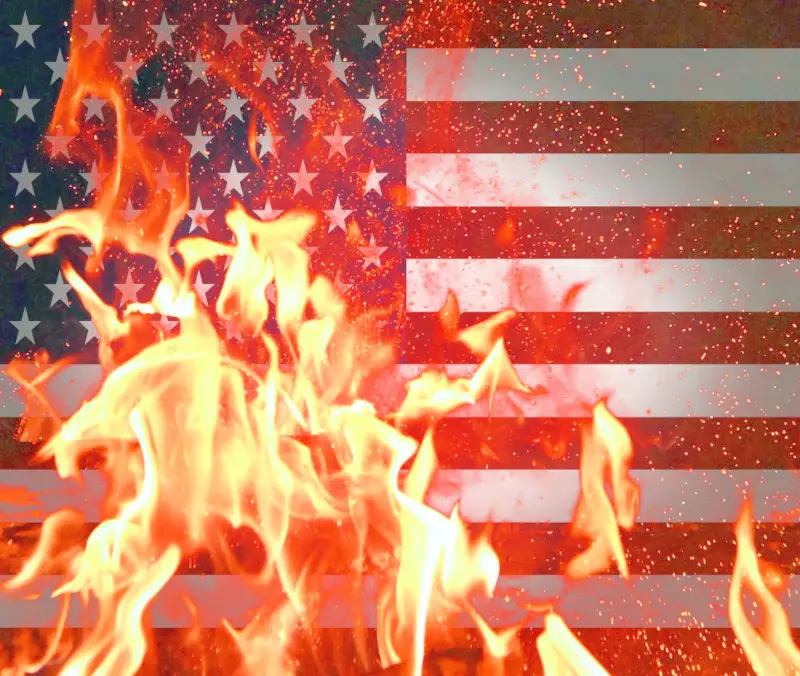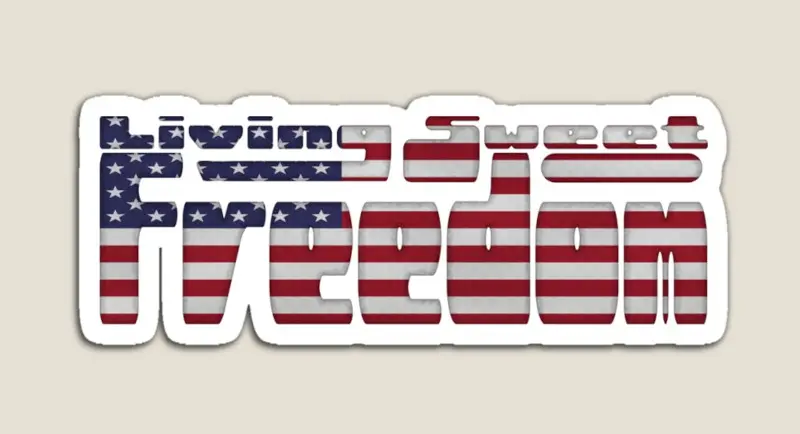Burning the Flag and Freedom of Speech – A Heathen Gothi’s View

Is it possible that flag burning is really a crime that should be punished in law? Or is it allowable by the principle of freedom of speech? Your Heathen Gothi, freelance internet jurist, will deliberate the matter here…
Back in November of 2016 Donald Trump broadcast his opinion that burning the US flag should be illegal and even punishable by incarceration. In most countries this would not be a controversial opinion in law but the USA has an amendment in its constitution protecting freedom of speech. The argument then could be made that flag burning is a kind of speech, even one specifically making a complaint against the government. Thus protected by the first amendment.

Indeed the US Supreme Court back in 1989 had already ruled that flag burning in a protest was protected by the 1st amendment of the US constitution. Yet it remains widely felt to be a great wrong, something akin to sacrilege.
Charming youtuber shoe0nhead took an informal poll of Trump supporters in the video below.
In it we see that the sampled Trump supporters are very divided on the subject some allowing flag burning as freedom of speech and others viewing it very harshly, even to the point of proposing a death penalty for reprisal.
Shoe0nhead takes it as self-evident that the right answer is in line with the US supreme court’s ruling. Yet I, Heathen Gothi, wonder if there could not be something more to say for the counter proposal that flag burning is a criminal wrong. An opinion that deeply felt by so many can hardly be completely baseless.

Who Owns the Symbol?
One rather clean way to begin analysing right from wrong is to examine the subjects of contention through the lens of property rights. One argument that came up in shoe0nhead’s poll was to consider the ownership of the physical flag being burned. The point could be summed that it was right to burn a flag one properly owned but not one that one did not own.
However it is well established in law that property rights can not just be defended in physical objects. They can be defended in intangible symbols and ideas too. Intellectual property law, trademarks and even law concerning slander and libel as a defence of reputation have long precedents dealing with this.
Moreover it is well understood that physical objects can have divided and composite property rights. Think to the days when IP protected music or video was distributed on a physical media such as a CD or DVD or even a paper book. The book buyer has a cleanly defensible property right in the physical media of paper and binding by virtue of his purchase but the right to reproduce the symbols printed within often remained with another, the copyright holder.
Could this logic be applied to flags? I think it is worth a look.
Clearly a flag is a composite product of physical media, the fabric, and an intangible symbol represented by the design. It might be fairly argued that the symbol rather the media is by far the more valued component of this hybrid property.
Ownership of the physical media is hardly of great concern as the exchange value of the physical fabric is hardly consequential and clearly of no concern to those burning it or to those complaining of the burning. Those that oppose flag burning do not mourn the cloth but the symbol.
So who owns the symbol of the flag? As an example one could think of the Stars and Stripes as something like a trademark for the United States of America. The USA is a republic and so it is in turn really a property of the US citizenry. The citizens are voting shareholders of the USA corporation, you might say. In most cases Trump supporters would be US citizens and so they could fairly be called joint owners of the US flag as a symbol.

Precedents and Principles
Perhaps then they could make a fair case that while a flag burner might have the right to burn the physical media of the flag, he would not have the same right to damage the symbol represented by it? If so, what bodies of existing law could be leveraged for the defence of the flag as a symbol?
Public Domain and Copyright
At this point someone might want to say that the design for the flag is public domain for copyright purposes and that makes it effectively fair game for destruction or defamation. We should be clear though that the copyright law is concerned with the right to reproduce a symbol rather than symbolically destroy it so this matter is beyond its scope.
Trademark
As a guide I would say trademark law is a closer precedent since it considers the right and wrongs of damaging symbols through misrepresentation.
Blasphemy
Blasphemy laws will be the closest precedent but they are not now widely supported outside of the Islamic world. The burning of the koran for example is pretty directly comparable to burning the US flag. In both cases it is expression of hatred for a symbol and the people and beliefs which are associated with it. Perhaps in this sense the new hate speech laws are applicable?
Hate Speech
As an aside, hate speech laws do not have a very solid foundation in terms of principles. I believe they owe their existence mostly for the convenience of law enforcement to allow the arrest of terrorists before they act rather than after.
I do not believe the intention behind the laws was to prevent debate. Rather it tends to be that terrorists will talk about what they are going to do before they do it. It is nonsensical to prosecute someone for terrorism before they have done it, that would be “pre-crime”. Yet it is desirable to prevent the events happening if possible. So instead The Powers That Be wanted to criminalise talking about it, since that gives them a tool for getting them off the streets before they do something physical. That is not to say that the hate speech laws have not been misused or misapplied. The infamous Count Dankula case being one such.
I suppose the burning of a national flag may be a clearer act of hate speech than burning a koran or bible. The reason for that is that the koran or bible is symbol of an ideology not just an associated people. Thus the motive for burning a koran could be an expression of hatred for an set of ideas rather than a people. There is some plausible deniability there.
However in the case of national flags I don’t believe such distinctions can be made. The USA is not an ideology, not really, thus its flag is a symbol of a set of people with citizenship in it rather than a set of ideas.
The Harm
To go back to the argument of damage to symbolic property, we should be clear that symbols can not really be harmed by any physical act. They are intangible. The burning of some cloth does not really hurt the symbol represented by it while it lives in the minds and hearts of its owners and be reproduced by them.
I have to emphasise that the ability to reproduce the symbol because some symbols are not reproducible and they can clearly be harmed in way reproducible symbols cannot. One thinks of the Shroud of Turin, or something like that. Burning that or an old church is a far more serious harm than burning an easily reproducible national flag.
The Matter of Feelings
So the harm, if harm there be, in the burning of a flag is to the feelings of those that associate with the symbol. It is an insult essentially.
So what is the right response to an insult? If we acknowledge an insult as a true harm then an equivalent and proportional reprisal would be to offer an insult back. Yet it is often, throughout history, keenly felt that an insult, a harm to self-image, can rightfully be answered by a physical harm in response.
In the West it is fashionable in law to downplay the significance of harm by insult in comparison with harm by physical injury. So to answer the insult made by a flag or koran burner with a physical injury or death could not be considered proportionate.
It does not seem this weighting is held by religious people though, particularly muslims. In general we see that devout Muslims prefer to suffer death rather than insult, as evidenced by the Charlie Hebdo attacks. For anyone very committed to the idea of an afterlife this actually makes perfect sense. Death is not the end, but honour is forever.
The Sentence
Donald Trump did not propose a physical punishment but rather incarceration. To my mind I believe incarceration is not a punishment in itself but rather a device of self-defence. It is not appropriate to bind the freedom of another except to prevent them from doing some unlawful harm. A murderer is not punished by incarceration but merely prevented from murdering someone else. A true punishment for murder would be execution.
I suppose whipping might be an proportional punishment for flag burning however I favour restorative justice over punitive justice.
If we acknowledge that national flag burning does constitute an unlawful harm to the feelings of patriots then a restorative approach would be to sue flag burners for compensation. A simple fine then might work as a substitute then for the administrative simplicity of it.
by Heathen Gothi aka Solar Cross